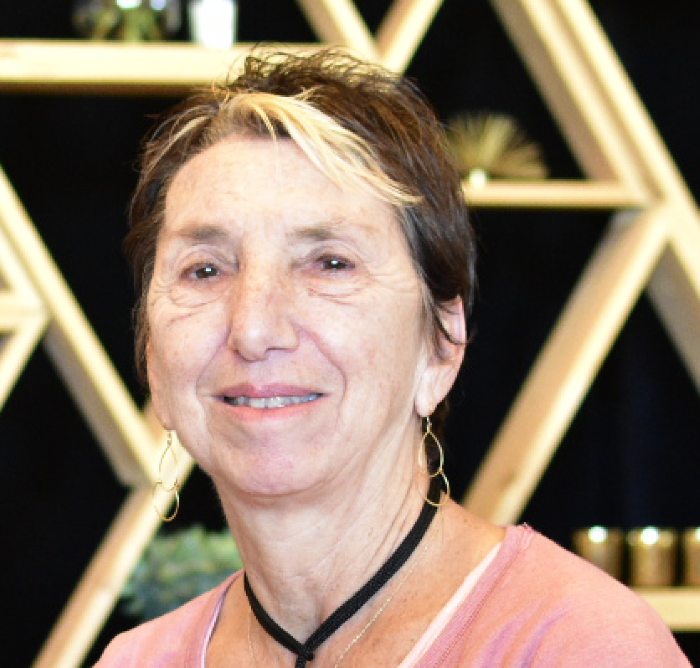 JoAnne was settled in a happy marriage and a fulfilling teaching career when, at age 62, a violent assault by a man wielding a hammer would upend her life. She writes about her struggle and recovery in her first book, Headstrong: Surviving a Traumatic Brain Injury
JoAnne was settled in a happy marriage and a fulfilling teaching career when, at age 62, a violent assault by a man wielding a hammer would upend her life. She writes about her struggle and recovery in her first book, Headstrong: Surviving a Traumatic Brain Injury.
Tell us about your background.
I was born in the industrial city of Worcester, MA in 1946, at the end of World War II and the beginning of the Cold War. My parents were both children of Jewish immigrants who fled the poverty and fascism of what came to be known as the Soviet bloc. As teenagers, both my mother and father were involved in radical politics, a response to the poverty they experienced and the economic inequality they witnessed.
When I was a child, Jews were considered a minority race and red hysteria had a firm grip on U.S. culture. I was shy and self-conscious about being Jewish and looking Jewish, an embarrassment that stayed with me much of my adult life. When I was seven, my family moved to San Francisco, the golden city by the sea. I can still remember my first sight of SF as our ’49 Pontiac, pulling a U-Haul trailer, crossed the Bay Bridge. San Francisco was sun-lit, with pastel colored houses climbing the rolling hills. California became my home, emotional and geographic. It was through writing that I discovered that the triple-decker houses, brick factories, and fears of being an outsider of my early childhood were deeply embedded in my sense of self.

Family photo circa 1950. I’m sitting on my grandmother’s lap.
In my family, it was a given that both my brother and I would go to college. My father said, “I sent you to kindergarten, why wouldn’t I send you to college?” He worked in a factory and every week put money into an account for my college education. I received my BA from the University of California, Santa Barbara, and completed one year of study toward a master’s in social work at California State University, San Diego, before moving to Kodiak Alaska with my then-husband. He was in the Navy and, after two tours of duty in Vietnam, was transferred to the naval base on Kodiak Island. I applied for a job in public welfare and at age 22, was hired to direct all public welfare services on the island. Four years later, we moved south to Alberta, Canada where I completed an MSW. As a teaching assistant, I discovered a love of teaching. Fortune smiled on me, and after I graduated, I was hired to teach full-time in the Faculty of Social Welfare, University of Calgary.
From my early 20s through middle-age, I lived in very different environments and challenged myself academically and vocationally. I see myself, however, as guided essentially by conventional standards. I thought being married was more important, as a female, than anything. I married at 20 and had a child at 30. At 35, I completed a doctoral degree in education at the University of Massachusetts, Amherst, and spent the rest of my formal work-life teaching in academic settings. While I assumed significant work responsibilities, it took me many years to feel as competent as my male colleagues.
In my mid-40s, I made a significant change in my personal life. My first marriage had ended shortly after the birth of my daughter and I remarried at 46. My wife and I have been together for 26 years. We have a family now of two adult children and a 19-year-old grandson.
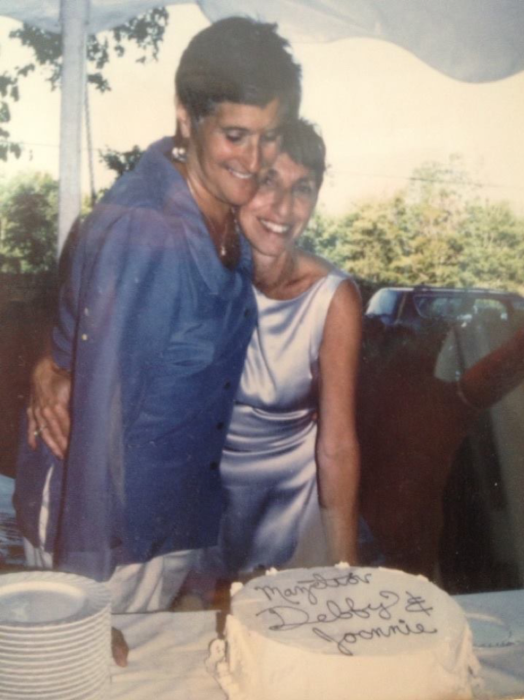
When did you start thinking of making a career change?
An unexpected event re-routed my life. At age 62, I was assaulted by a stranger wielding a hammer. At that point in my life, I felt physically strong and fit and had no plans for retirement. My work was rewarding and, after 35 years, very familiar and comfortable. After the assault, I worked for two more years, but the sequelae of traumatic brain injury left me too fatigued to maintain my work schedule.
The event catapulted me to new territory, one where there were no conventions to follow.
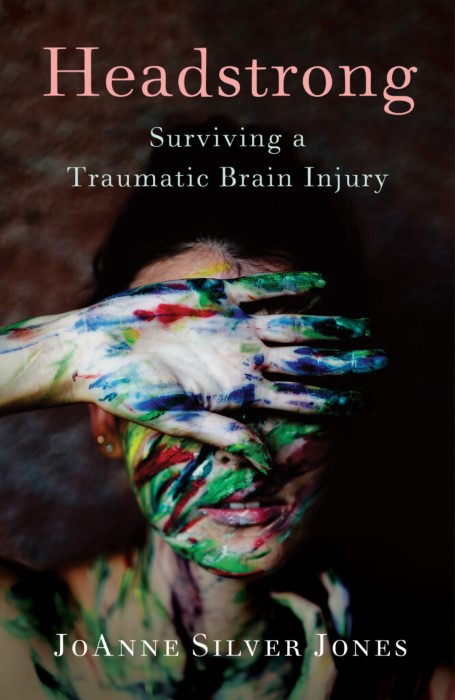
What is your next act?
I’m a writer! What amazing words to say out loud. Writing is my new act. In some ways, writing found me, rather than me forming an idea and pursuing it. A few years after the assault, I started to put some thoughts on paper. At that point, I had no intention of writing a book. People often ask me if writing about what happened to me has been therapeutic. For me, it hasn’t been the telling of my story that has had the greatest impact, rather the creativity required to write. I had to probe into myself, finding connections with the factories of Worcester with my journey to heal from a brain injury.
I fell in love with the process of writing, even the struggles, and blocks, self-doubt, and search for language. When I’m writing, I feel as though I’m using my whole self. I’m like an explorer, visiting a land that’s never been traveled, making the map, charting the course, and all from my imagination. Even the edits and rewrites were stimulating. Editing involved revisiting the journey, seeing it in new ways, and developing better routes. When I’m in my writing zone, I have no sense of time and I’m relieved, during that time, of the worries that are the stuff of life. I live in the world I’m constructing with words.
My book, Headstrong: Surviving a Traumatic Brain Injury, is about being the victim of a random, violent assault, living with and healing from the severe traumatic brain injury and post-traumatic stress that followed, and describing the contexts in which the attack occurred, and my healing took place. How race is understood in our country, current racial politics, my upbringing, and professional life are all inextricably entwined in what happened to me and impacted my recovery process. I explore these dynamics as they unfolded, as I struggled to forge a new life, with limitations, but infused with meaning and joy.
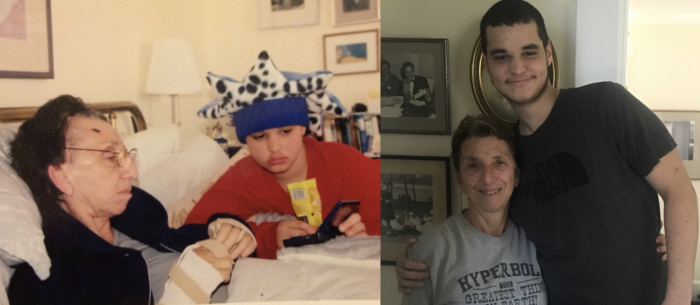
With my grandson during my recovery–and today!
How hard was it to take the plunge?
The hardest part was, of course, the beginning. The plunge, for me, was moving from making some diary-like notes and reading some books by others who had experiences similar to mine, to committing to writing a book and entering a place I’d never been.
I began by joining a manuscript group that had a clear set of writing expectations for all members. Entry into the group required writing 40 pages every two weeks and reading and commenting on the work of the other five group members. When I was accepted as a member, I established a writing space in my house, bought file folders, and developed a writing schedule. I began with neat stacks of green file folders and an organized stack of books for reference. Gradually, the file folders were in disarray, the books were strewn in different parts of the room, and writing had a firm hold on me.
How supportive were family and friends?
This is the easiest question to answer. I am blessed with a family that has always supported and loved me unconditionally, and a circle of friends who are always in my cheering section. My wife encouraged me to write a book, even before I was engaged in the process. Once I started, she read each draft, listened to my self-doubts, and celebrated each step forward.

Family picture was taken at my mother’s 90th birthday. From left to right: My wife Debby, my sister-in-law Mary, my daughter Rachel, my mother, my nephew Joel, me, my niece Monica.
What challenges did you or are you encountering?
As with so many things, many of the challenges were mainly internal. Initially, I would describe my writing as “shy.” I am a shy person and, when not in my professional role, I tend to sit back and listen. I become self-conscious and uncomfortable if I’m too visible, too “out there.” When I started writing with the intention of completing a book, my writing was very, very succinct. Something like, “I was assaulted and then I was released from the hospital.” I didn’t elaborate or bring readers into any back story or provide enough details to build the foundation of a narrative. I had to dig into myself, push beyond my discomfort, let the story surface, and then find language to invite readers into my story. I had to learn about the craft of writing. I had to learn to hear feedback without resistance.
Another challenge was to carve out time to write and to see that time as legitimate, no less important than going to work. I had to protect that time from intrusions, from others and myself, such as an errand, or laundry, or an invitation from a friend. I had to see writing as a rightful priority in my life.
A challenge that continues is learning about the getting-published-publicity-selling books business. In the beginning, it was daunting, both because of the steep learning curve and the need to keep finding the stamina to continue in the face of rejections. I’ve learned a great deal since becoming a writer and I know more lessons await.

Publicity from the self-care blog tour
What did you learn about yourself in the process?
I’m a honey badger. I don’t give up and I don’t stop until I can feel, inside of me, that what I’ve done is as good as I can do. I keep going, whether I’m tired or confused, discouraged or depleted. I keep going.
I find change exhilarating. The transformation I’ve made to become a writer is similar to how I felt when I arrived at Orly Airport and finally saw Paris for the first time in my 40s. I’m here! Now I want to soak up as much as possible and luxuriate in the newness and thrill of accomplishment.

My writing space
Looking back, is there anything you would do differently?
Years ago, my brother went to Paris for a six -month sabbatical. He invited me to come and stay at the apartment he’d rented for as long as I wanted. My daughter was out of college and my job gave me a great deal of flexibility. I didn’t go. My reasons for not going weren’t that consequential. I didn’t grab the opportunity and push other concerns to the side. I wish I had taken more risks earlier in my life and stepped into more unfamiliar places.
In the same vein of, I wish I had, I wish I had started writing sooner. Writing has always been an interest and I didn’t give creative writing space in my life to flourish. Similar to not going to Paris, I told myself, “I don’t really have the time,” “I need to finish this whatever for work,” “I’ll do it another time.”
What advice can you offer women seeking reinvention in midlife?
Don’t dream alone. Even though the decision to make a life change is individual and personal, the process needs the light of other eyes and the clearness of other ears. Try not to censor yourself before sharing what you might think of as a wild scheme or impossible change. Then share again. Bring a group of friends together, provide some snacks, and share your thoughts Tell friends that you accept feedback but not criticism. Read about others who do what you wish you could do. Visit places. Find people with whom you can share all of your fears and worst scenarios. Women, for the most part, enter many situations with a “less than” state of mind. There is so much in our culture that screams to us: You’re not that capable; you’re not smart; women don’t do that. Screaming back, Yes, I can, takes practice and the support and presence of others.

My 55th high school reunion, Balboa High School, San Francisco
What’s your advice to others pursuing a writing path?
The best thing I did was to take a manuscript workshop. I gained so much from the demands of the structure and developed the habit of seeing myself as a writer. There are so many opportunities to explore writing, from on-line groups, to local leaderless groups, to formal writing groups.
Go to writers’ conferences and book festivals. In addition to formal presentations, these events provide exposure to the culture of writers. Every endeavor has its own culture and part of the challenge of reinvention is learning a new culture. There are particular words (like Pub. Date), common experiences that people share, resources offered, such as groups that read manuscripts or share writing. There are always people, typically many, who share the same doubts and challenges as you. Attending events or joining a Facebook group offers a way to acquire more information and reduces the sense of aloneness that accompanies going toward any new life path.
Write. Keep writing, regardless of whether the writing becomes a book or something to store on a shelf. Practice. Practice is key.
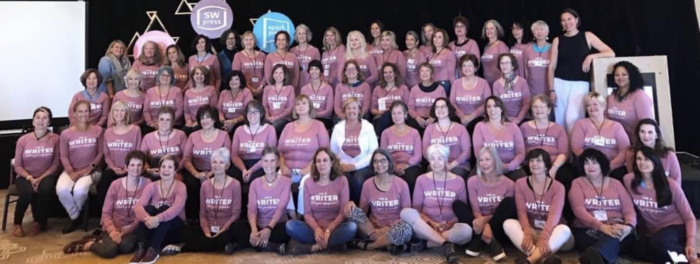
At the She Writes Press retreat, 2018
What resources do you recommend?
Men We Reaped: A Memoir by Jessamyn Ward. A beautifully written, powerful memoir. It is written in five sections, each depicting men in Ward’s life who have died through violence.
Writing Down the Bones: Freeing the Writer Within by Natalie Goldberg. Anything by Natalie Goldberg. She offers sage advice about writing and life.
The Secret Thoughts of Successful Women: Why Capable People Suffer from the Impostor Syndrome and How to Thrive in Spite of It by Valerie Young. Why do capable people suffer from the imposter syndrome and how to thrive in spite of it. Young offers a compelling analysis of the Imposter Syndrome, the many ways in which women, in particular, believe that their competence is a ruse, and that, in fact, they are imposters. She explodes this myth and encourages women to embrace their skills and dreams.
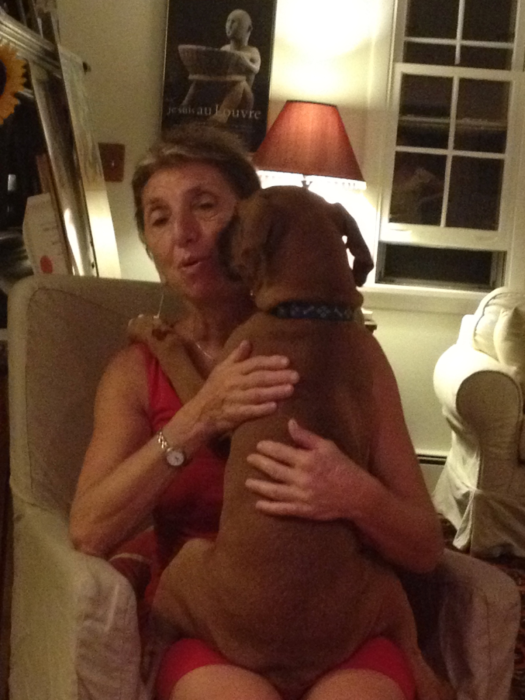
With my boxer, Koufax, when he was 8 months old
What’s next for you?
When I started to write Headstrong, my intention was to finish it and do some work with people and organizations that dealt with Traumatic Brain Injury and Trauma. I hope this will happen. Now, though, I’m thinking about my next book. I’m a writer! Next, I want to write a murder mystery. For several years, I was a member of a local writing group and regardless of the writing prompt, I frequently wrote mysteries. Headstrong raised questions for me about being Jewish. After my assault, I became the target of some white supremacist groups because I was a Jewish woman who was known for anti-racism work, assaulted by a black man at the inauguration of a black man. I want to do more exploration of the emotional, cultural and political complexities of my Jewish background, through the genre of mystery.
My first book was released six days after my 73rd birthday. I feel, more than ever, that there are more acts left for me. I love not knowing and being open to what appears.
Connect with JoAnne Silver Jones:
Email: joanne.jones1@comcast.net
Book: Headstrong: Surviving a Traumatic Brain Injury
Website: JoAnne Jones
Friend me on Facebook: https://www.facebook.com/joanne.s.jones.9
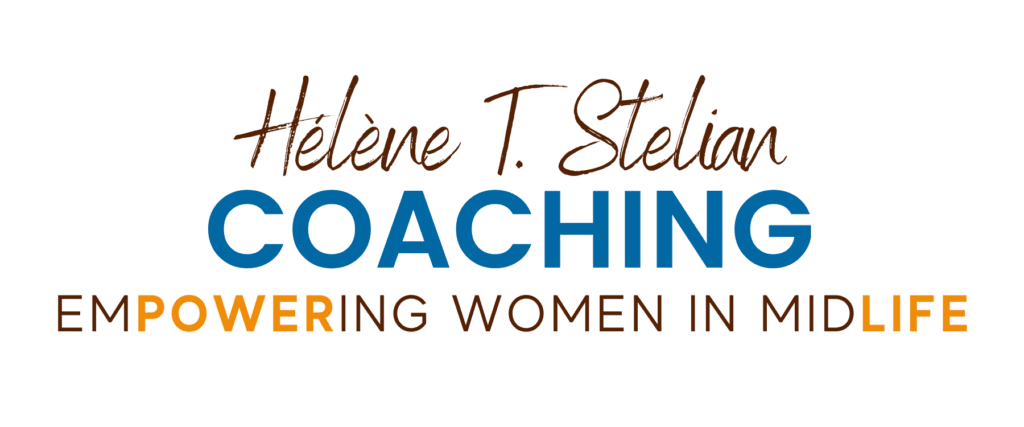

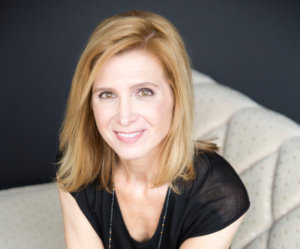
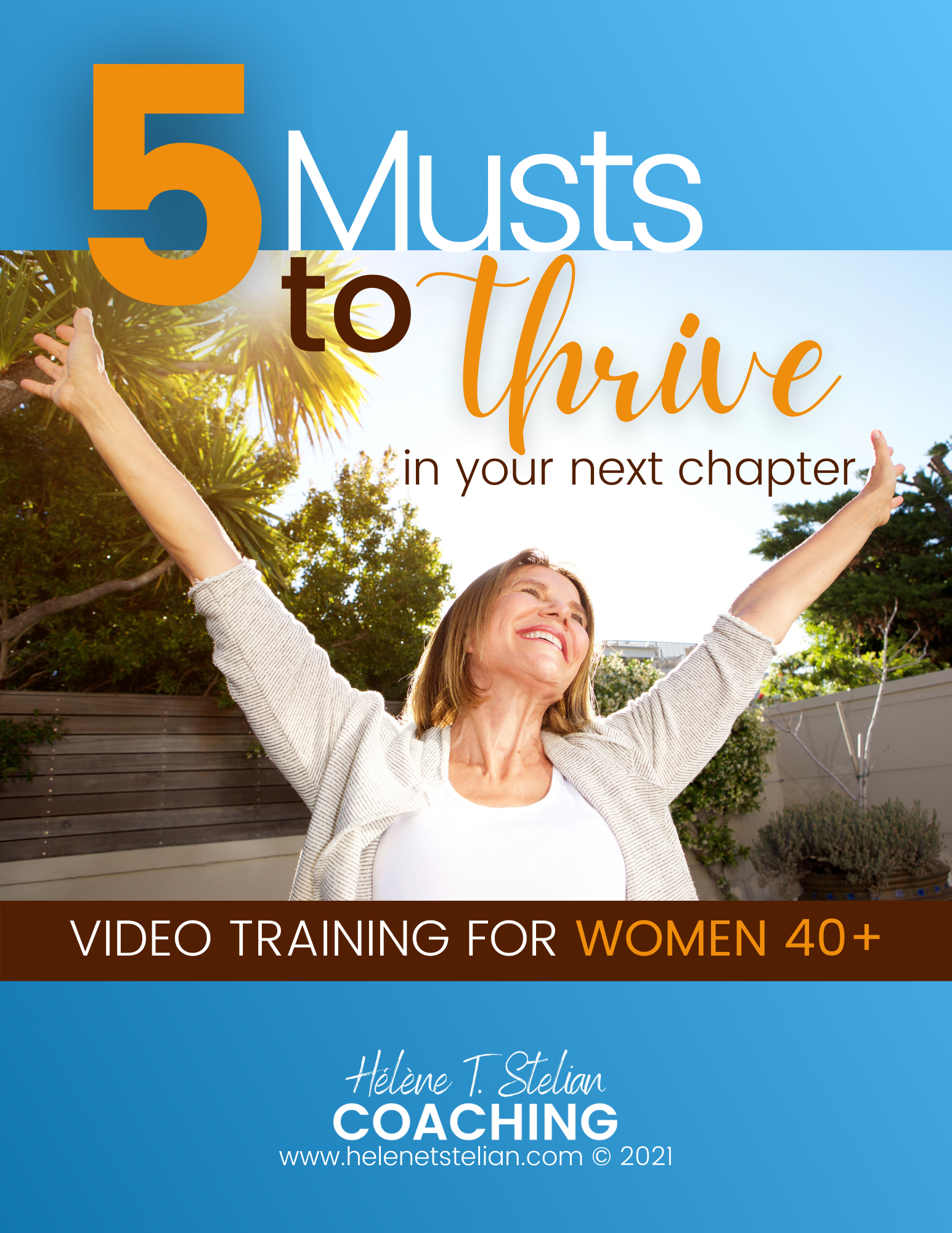



OOH RAA!!!
Just brilliant, lovely to have found a new path after so much trauma. Lovely the picture of your writing desk, the brightness and warm feeling of that room.
Hi Joel,
Thanks for your comment and voice of support.
My best to you,
JoAnne
Hi Una,
Thank you for your kind comment. I’m glad that my story had meaning for you.
Best wishes to you,
JoAnne